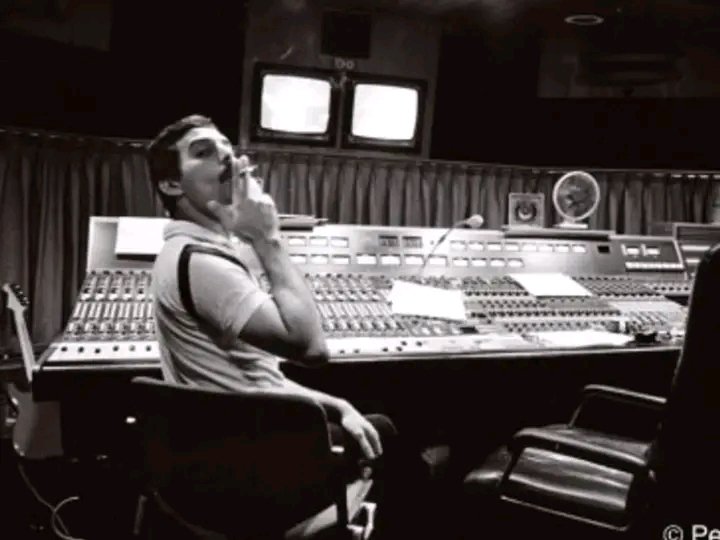“Write Me More, I Want to Sing”: Freddie Mercury’s Final Days in Montreux and the Haunting Beauty of “Mother Love”
In the quiet town of Montreux, Switzerland, nestled beside the still waters of Lake Geneva, Freddie Mercury recorded the final notes of his extraordinary life. The year was 1991, and the place was Mountain Studios—Queen’s private recording sanctuary. It was here, in a space that had always been an oasis of creativity, that Freddie Mercury sang what would be his last song: the achingly vulnerable and powerful “Mother Love.”
The song was recorded between May 13th and 16th, just six months before Freddie’s passing. The atmosphere in the studio was anything but somber, according to assistant engineer Justin Shirley-Smith, who was present during those final sessions. “This is hard to explain to people, but it wasn’t sad. It was very happy,” he recalled. “He was one of the funniest people I have ever encountered. I was laughing most of the time with him.” Even as his illness progressed, Freddie defied despair. “I’m not going to think about it, I’m going to do this,” he insisted. It was a declaration of purpose, of defiance, and of unshakable passion for music.
“Mother Love” is no ordinary farewell. It is a raw, emotional plea for solace and protection—a longing to return to the innocence of being cared for. “I can’t take it if you see me cry,” Freddie sings, his voice still full of warmth, still radiant with power. “I long for peace before I die.” These lyrics are among the most intimate he ever recorded, revealing the vulnerability behind the bravado, the human behind the icon.
Brian May, Freddie’s longtime friend and bandmate, later spoke of why Freddie chose Montreux for this last chapter of his life. “He just wanted peace and quiet to be able to get on with what he did,” Brian explained. “Freddie wanted his life to be as normal as possible. He obviously was in a lot of pain and discomfort. For him the studio was an oasis, a place where life was just the same as it had always been.” That studio, filled with decades of memories and music, became a sanctuary for a man refusing to be broken.
Despite his failing health, Freddie’s determination never wavered. “We all knew there wasn’t much time left,” Brian said, “but he just kept saying ‘Write me more. Write me stuff. I want to just sing this and do it, and when I am gone you can finish it off.’” It was as if he was racing against time, eager to leave behind every note he could while he still had breath. His courage, his resilience, and his unwavering artistic spirit lit up those final sessions.
But even legends must pause. Freddie sang up to the penultimate verse of “Mother Love,” then turned to his bandmates and said, “I’m not feeling that great. I think we should call it a day now. I’ll finish it when I come back next time.” That “next time” never came. He never returned to the studio. It was Brian May who later finished the final verse, honoring his friend’s last creative wish.
The lyrics Freddie left behind—“My body’s aching but I can’t sleep. I’m coming home to my sweet mother love”—echo like a soft goodbye. They are full of weariness, longing, and peace. “I don’t want pity,” the song says. “Just a safe place to hide.” In the quiet of that Swiss studio, Freddie Mercury found that safe place, even if just for a few fleeting days.
And in “Mother Love,” he gave us not only a final song—but a glimpse of his soul, stripped bare, still singing.
